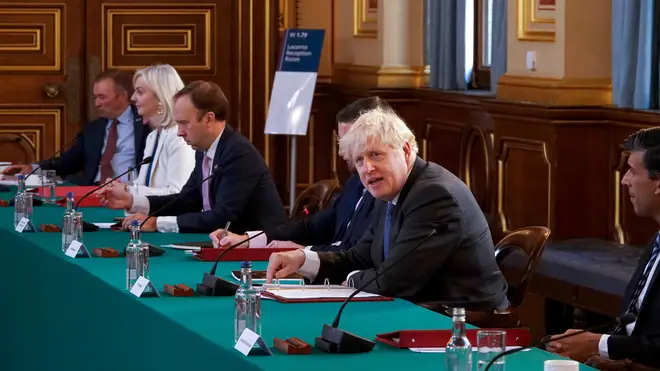
James O'Brien 10am - 1pm
13 October 2020, 15:58

Boris Johnson has decided to freeze ministerial salaries amid a backlash over a pay rise for MPs, Downing Street has confirmed.
The Prime Minister made the move after anger at an above-inflation pay rise for politicians proposed by the Independent Parliamentary Standards Authority (IPSA).
The body, which is independent from the Government and Parliament, was given the power to set MPs' salaries after reforms in 2011.
The Prime Minister's official spokesman said: "The Government is only responsible for ministerial salaries. Ipsa, which is independent of both Government and Parliament, has responsibility for determining MPs' salaries.
Read more: Keir Starmer tells LBC MP's pay rise 'should be spent on key workers'
Read more: Iain Dale's fiery row with caller who demands MPs take a pay cut
"What I can say to you today is that the Prime Minister has decided that at a time of significant pressure on public finances, it is only right that ministerial salaries should be frozen.
"This means that Commons ministerial salaries have now remained frozen since 2010 and Lords ministerial salaries will remain frozen at 2019/20 levels."

Starmer: MPs shouldn't have a £3,300 pay rise
The move means that the pay for a Secretary of State will earn £4,168 less than they are statutorily entitled to.
The basic annual salary for an MP currently stands at £81,932 and they can claim expenses for the running of their offices.
IPSA has recommended that next year they get a pay rise of £3,300, which would take their salaries to more than £85,000.
Read more: MPs get £2,500 pay rise, bringing salaries to £82,000
Labour Leader Sir Keir Starmer said on Monday that MPs should not be receiving the increase.
Richard Lloyd, Ipsa's interim chairman, said the body had a statutory duty to review MPs' pay in the first year of each parliament.
Major reviews were carried out in 2012, 2013 and 2015, with technical adjustments in 2018.